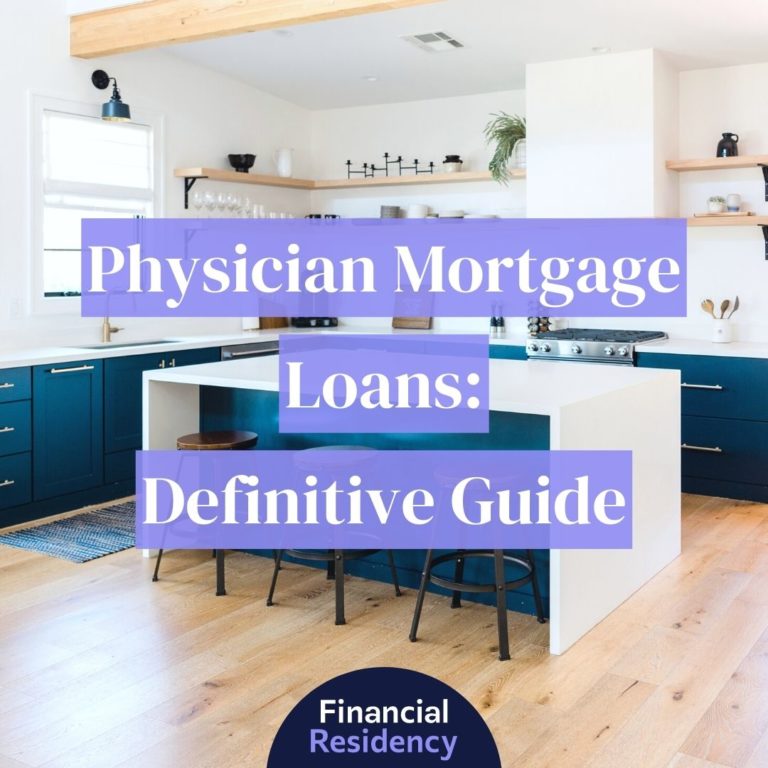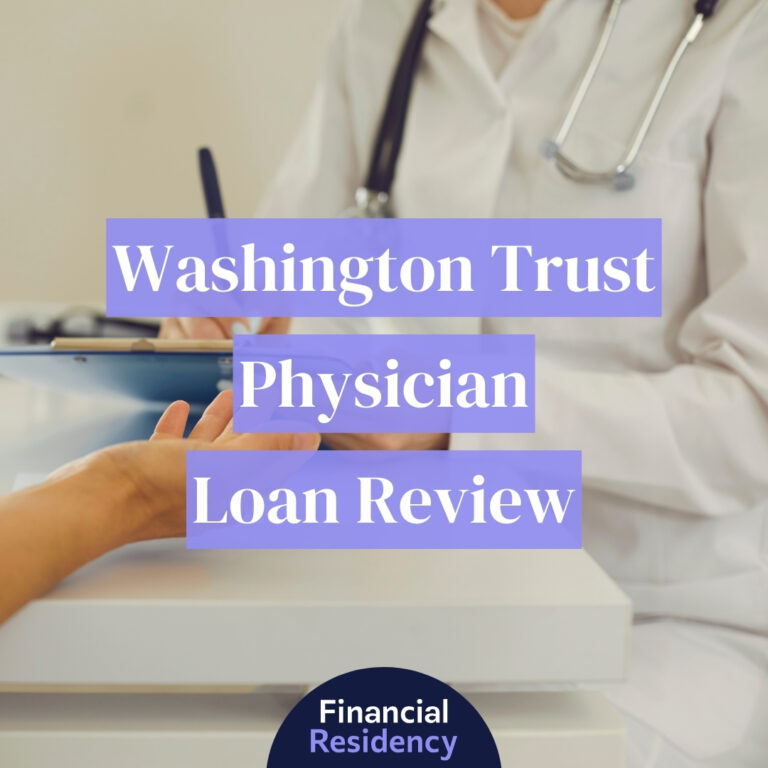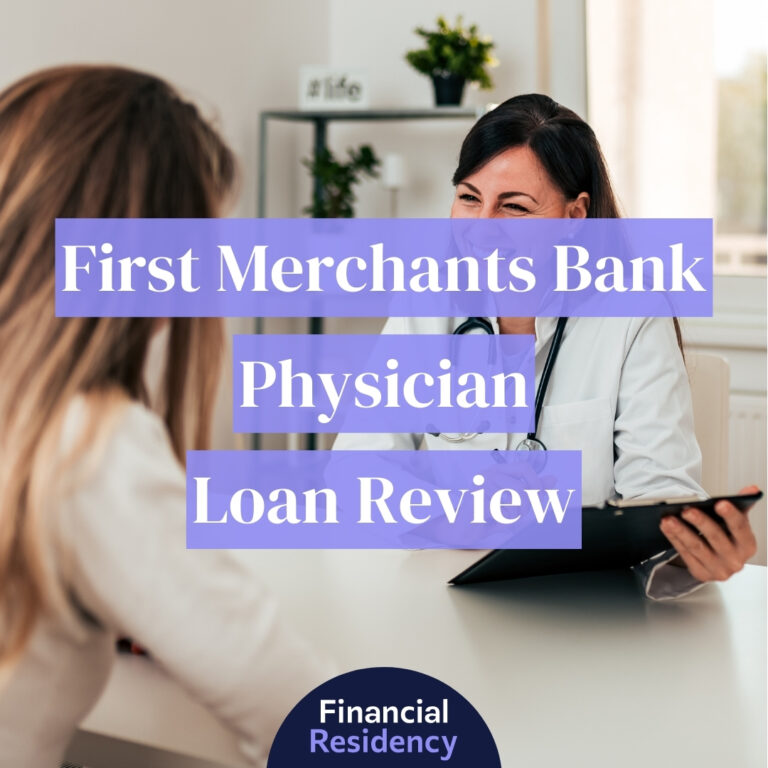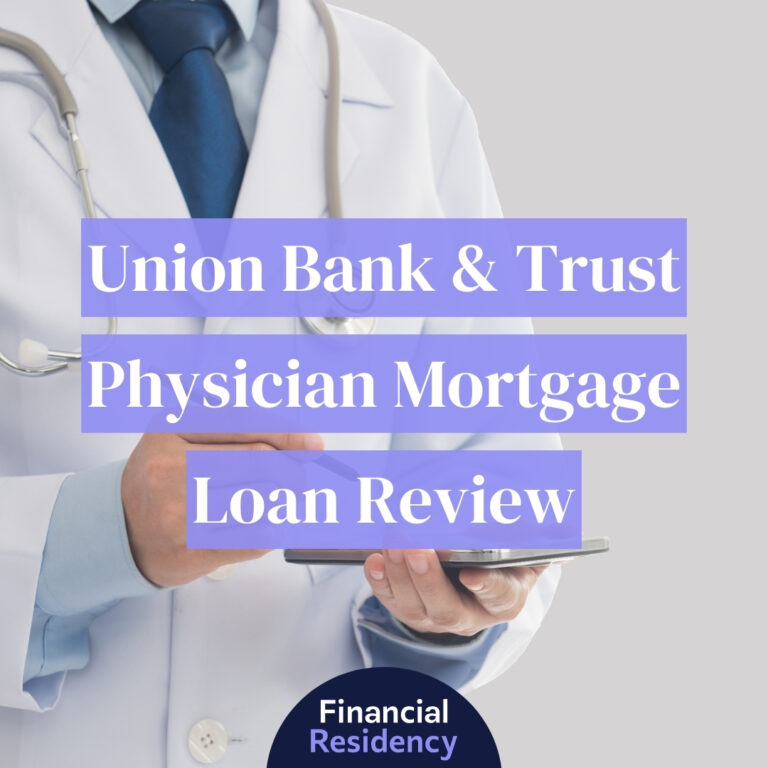The best physician mortgage loans in North Dakota make it possible for physicians, healthcare providers, and other qualified high-earning professionals to purchase a new home that meets their current and long-term needs.
Finding a doctor’s home loan in North Dakota may be the perfect tool for your upcoming move or refinance in The Peace Garden State. Experienced loan officers can help interested medical professionals join the 2,000 practicing physicians practicing here by guiding them from initial pre-approval through underwriting and finally to a smooth closing.
North Dakota offers its 760,000 residents a rugged lifestyle, filled with a myriad of scenic sites across the state. It’s also home to a changing healthcare landscape that is challenged by the sprawling distances between each town and the need to share resources between them.
If you’re ready to find the best physician loans in North Dakota for you and your family, then one of the following trusted mortgage lenders will be able to help.
9 Best North Dakota Physician Home Loan Lenders
Here are the top physician mortgage loan lenders in ND:
- Alerus Financial
- BMO Bank
- Bank of America
- Citizens Bank
- Evolve Bank & Trust
- Flagstar Bank
- Huntington Bank
- NEO Home Loans
- U.S. Bank
Discover The Best Lenders in North Dakota Answer just a few questions about your career, where you're buying, and how much you want to borrow. Our service will then show you the exact programs you're eligible for from vetted physician loan specialists who will guide you through every step of the process – obligation-free!
1. Alerus Financial
- BBB Grade: A+
- JD Power Score: N/A
Alerus Financial offers physician home loans to medical professionals across various professions in North Dakota. Unlike many physician loan programs, Alerus doesn’t limit financing to medical professionals within the first 10 years of their careers.
Borrowers with the following medical degrees are included in the program:
- Medical Doctor (MD)
- Doctor of Osteopathic Medicine (DO)
- Doctor of Dental Surgery (DDS)
- Doctor of Dental Medicine (DMD)
- Doctor of Veterinary Medicine (DVM)
- Doctor of Optometry (OD)
Chiropractors, clinical professors, researchers, residents, and fellows with a current license or valid diploma may also be eligible. All borrowers must hold a 680 minimum credit score, which is a slightly lower credit threshold than comparable loan programs.
The program provides financing options up to the maximum loan amount of $1.5 million with low down payment options. All down payment options exclude private mortgage insurance (PMI), which can reduce monthly payments by thousands of dollars over the life of the loan.
Qualified borrowers can receive up to $750,000 without a down payment. Loans up to $1 million require a 5% down payment and loans up to $1.5 million require a 10% down payment.
Borrowers may purchase a new home or refinance their primary residence. Rate/term and cash-out refinancing options are available as are fixed and adjustable-rate mortgages depending on the borrower’s unique circumstances.
2. BMO Bank
- BBB Grade: A+
- JD Power Score: 653
BMO Bank offers flexible financing options to residents, fellows, physicians, and dentists in North Dakota. The program has a generous maximum loan amount of $2 million with low down payment options––all of which exclude PMI.
The following medical designations are accepted by the Physicians’ Mortgage Program:
- MD
- DO
- DDS
- DMD
Borrowers at any stage of their careers can qualify, but medical professionals who have practiced for 10 years or more will be required to put down at least 10% regardless of the total loan amount.
Earlier career medical professionals are eligible for 5% down payments on loans up to $1.5 million or 10% down payments on loans up to $2 million.
Loans may be used to purchase or refinance a single-family home, duplex, condominium, or townhouse that will be used as an owner-occupied primary residence.
The underwriting team will use flexible guidelines to make it easier for borrowers with student loan debt and limited income history to qualify. The program may exclude some or all student loan debt and it will accept future-dated employment contracts and residency agreements set to begin within 90 days of closing.
All fixed and adjustable-rate mortgage products are available. Borrowers who open a BMO checking account and enroll in AutoPay for monthly payments can qualify for a $500 closing cost discount.
3. Bank of America
- BBB Grade: A+
- JD Power Score: 628
Bank of America’s physician loan program is open to licensed and practicing physicians with one of the following minimum degrees:
- MD
- DO
- DDS
- DMD
- OD
- DPM (Doctor of Podiatric Medicine)
Current medical residents and fellows are also included. Borrowers must hold a 700 minimum credit score and a valid medical license.
Like other physician loan programs, Bank of America will work with borrowers who are set to begin their employment within 90 days as long as they can show proof of a residency agreement or acceptable salaried contract.
Borrowers have the following down payment options:
- 3% on loans up to $850,000
- 5% on loans up to $1 million
- 10% on loans up to $1.5 million
- 15% on loans up to $2 million
PMI is waived with all down payment options. Deferred student loan debt can be deferred from debt-to-income (DTI) ratio calculations, which can make it much easier to qualify.
Borrowers will be required to have an existing relationship with Bank of America or they can open a checking account when they complete their loan application.
Borrowers will also need to have sufficient savings to cover four to six months of cash reserves.
4. Citizens Bank
- BBB Grade: B+
- JD Power Score: 653
Citizens Bank offers special financing options to medical residents, fellows, physicians, and dentists within the first 10 years of their careers. The program is open to the following medical professionals:
- MD
- DO
- DMD
- DDS
Borrowers can qualify for loans up to $850,000 with just a 5% down payment. All down payment options provided by this program exclude PMI, which can make monthly payments more affordable compared to a conventional loan.
Borrowers can put 10% down on loans up to $1 million or 15% down on loans up to $1.5 million. Loans may be used to purchase a new home or refinance an existing primary residence.
Citizens Bank also offers construction loan financing to qualified medical professionals.
The lender is flexible with student loan debt as well. Borrowers with deferred student loans may have them excluded entirely from the DTI ratio calculations, but it’s not the only option.
Borrowers on income-driven repayment plans can use their reduced monthly payment amount to qualify.
All fixed and adjustable-rate mortgage products are available.
5. Evolve Bank & Trust
- BBB Grade: B
- JD Power Score: N/A
Evolve Bank & Trust’s Medical Professional Program offers competitive financing options to healthcare professionals who have completed medical school in the last 10 years.
The program is open to the following medical professionals:
- MD
- DO
- DDS
- DMD
- PA (Physician Assistant)
- NP (Nurse Practitioner)
- DVM
- CRNA (Nurse Anesthetist)
- DC (Chiropractor)
- OD
- DPM
- PharmD/RPH (Pharmacist)
- Clinical Nurse Specialists
The Medical Professional Program is a portfolio product for Evolve Bank & Trust, which means it won’t offload or sell the loan at any point. It also dedicates a whole team to processing and underwriting loans, so the team is uniquely suited to understand the needs of medical professionals and the home-buying process.
The underwriting team will make exceptions for borrowers on an individual basis. Borrowers can apply for fully-underwritten pre-approval at no cost.
The team will use commonsense underwriting to work with aggressive DTI ratios and lower credit scores than its competitors. Borrowers may use a future-dated employment contract to qualify if they don’t have sufficient income history.
Borrowers who can’t qualify on their own income or credit can apply with a non-occupant co-borrower or use gift funds. The lender requires minimum reserves, but the required amount will depend on the principal loan balance.
Borrowers can be approved for generous loan amounts with low down payments and no PMI. The following options are available:
- 0% down on loans up to $1 million
- 5% down on loans up to $1.25 million
- 10% down on loans up to $1.5 million
- 15% down on loans up to $2 million
Loans may be used to purchase 1-4 unit properties, single-family homes, and condominiums. Borrowers may also be able to pursue construction financing to build a new house.
6. Flagstar Bank
- BBB Grade: NR
- JD Power Score: 625
Flagstar Bank offers an inclusive Professional Loan Program to qualified high-income earners across a number of industries. All borrowers must be within 10 years of beginning their careers to qualify.
The following professionals are eligible:
- Medical Resident (Educational License)
- MD
- DDS
- DMD
- OD
- PharmD
- DPM
- DO
- PA
- RN
- CRNA
- NP
- Clinical Nurse Specialist
- ATP Pilot
- CPA
- JD
- DVM
Borrowers with a 720 minimum credit score can secure up to $1 million without a down payment. There are low down payment options on loans up to $1.5 million. All down payment options exclude PMI, but all loans through this program are structured as adjustable-rate mortgages.
Adjustable-rate mortgages start with an initial low-interest rate, but it eventually expires and later continually resets to the market rate.
Flagstar Bank offers introductory interest rates for 60, 84, or 120 months. After this period ends, the interest rate will reset at six-month intervals.
Loans may be used to purchase or rate/term refinance a single-family home, condominium, or property in a planned unit development.
Minimum cash reserves are required but borrowers can apply interested-party contributions to these requirements.
7. Huntington Bank
- BBB Grade: A+
- JD Power Score: 640
Huntington Bank offers up to $2 million to qualified medical professionals at any stage in their careers. The following degrees are accepted into the program:
- MD
- DO
- DDS
- DMD
- DVM
Borrowers must have sufficient income, active employment, and cash reserves to qualify, but the program doesn’t have an age limit. The required minimum reserves will vary depending on the loan amount and borrower’s credit profile.
Borrowers can qualify for 100% financing on loans up to $1 million, 95% financing on loans up to $1.25 million, and 90% financing on loans up to $2 million. PMI is not required.
The program is reserved for the purchase or refinancing of a primary residence only. Cash-out refinancing options are available, but the total overall cash-out option is limited to $250,000.
Borrowers may choose from fixed or adjustable-rate mortgage products.
8. NEO Home Loans
- BBB Grade: A+
- JD Power Score: N/A
NEO Home Loans offers specialized mortgage products in local markets for residents, fellows, practicing physicians, dentists, and self-employed healthcare professionals.
The following medical professionals are eligible:
- MD
- DMD
- DDS
- DO
- RPH/PharmD
- DC
- DVM
- OD
- DPM
- DCH (Diploma of Child Health)
J-1 visa holders, self-employed medical professionals, and independent contractors are also included.
NEO Home Loans’ physician mortgage underwriters are flexible on student loan debt and lack of income history. New doctors can qualify with a future-dated employment contract so they can settle into their homes before beginning work.
The program may be used to purchase or refinance 1-2 unit properties. Borrowers can qualify for 100% financing on loans up to $1 million or 95% financing on loans up to $2 million. Both financing options exclude PMI. Gift funds may be applied toward the down payment.
9. U.S. Bank
- BBB Grade: A-
- JD Power Score: 667
U.S. Bank’s physician loan program is open to physicians and attorneys at any stage in their careers. While the program is more exclusive than some of the other programs on this list, it does include residents and fellows.
Borrowers who don’t have a lengthy employment history can use a future-dated residency agreement, employment contract, or two years of recent income history.
Borrowers can be approved for up to $2.5 million with low down payment options. All the down payment options exclude PMI. Loans up to $1 million only require a 5% down payment. Loans up to $1.5 million require a 10% down payment and loans up to $2 million require a 15% down payment.
U.S. Bank doesn’t totally exclude student loan debt, but it is flexible for borrowers in deferment. Those with deferred student loans will have 2% of their total loan balance used to calculate the DTI ratio and determine credit approval.
Borrowers must also have a 710 minimum credit score and at least 3 months of cash reserves. Some loan amounts could require up to 12 months of cash reserves depending on the borrower’s financial situation.
Borrowers who open a Platinum Checking Account can also qualify for a lender credit of up to $1,000. The lender credit is 0.25% of the total loan amount.
Loans may be used to purchase or refinance a primary residence.
How Physician Mortgage Loans Work in North Dakota
Physician mortgages in North Dakota don’t have many differences from other areas in the country, but some mortgage lenders may only operate in North Dakota or have different loan terms for different geographic areas.
The best way to find out more information about loan programs in the area you live is to work with a trustworthy loan officer. However, it’s always a good idea to be informed before beginning the home-buying process, so we’ve identified and distilled the typical loan terms of physician loans in North Dakota.
Flexibility with Qualifying Terms
Financial institutions see physicians and other advanced degree holders as a lower risk for default due to their high earning potential, inherent job stability, and increased likelihood of student loan forgiveness by working in public service. Physicians are also quicker to pay off their student loans than borrowers in lower-income professions.
For this reason, lenders are willing to be more flexible with the qualifying terms for home loans, especially for medical professionals at the beginning of their careers.
Some physician loan programs, such as Evolve Bank & Trust and Flagstar Bank, limit financing to medical professionals within the first 10 years of their careers because those individuals are the most likely to be impacted by the common barriers physician loans seek to eliminate.
Early-career medical professionals are unlikely to have the savings to cover a down payment due to all their years in medical school and the associated fees.
Flexibility with Down Payment and PMI Requirements
While not all conventional loans require a 20% down payment, they will require PMI to protect the lender in case of default. PMI is calculated based on a percentage of the total loan amount and it can add hundreds of dollars to borrowers’ monthly payments.
Physician loans waive this requirement, which can save borrowers significantly over the life of the loan.
Flexibility with Employment History
Medical school also makes it difficult to work full-time, so many recent graduates don’t have the income history necessary to qualify for a conventional mortgage.
Physician loan programs make it easier for upcoming residents and new doctors to qualify for a home loan by accepting residency agreements and future-dated employment contracts.
This flexibility is particularly great for professionals who have to relocate because it allows them to settle into their new living situation before giving their full focus to their work.
For New Home Purchases & Refinancing
Physician loans aren’t just for purchasing a new home though. Medical professionals who have already purchased their homes can refinance at a lower rate or cash out their existing equity to invest in other worthwhile endeavors.
Some physician loan programs even offer construction financing options for medical borrowers interested in building their dream homes.
Flexibility with DTI Ratio
Physician loans are also more lenient on student loan debt than many conventional loan programs. Most programs will have flexible underwriting guidelines that allow loan officers to make case-by-case exceptions when calculating the DTI ratio.
Because early-career medical professionals have yet to reach their full earning potential, having a lot of student loan debt can skew their DTI ratio outside the acceptable threshold for conventional mortgages.
Excluding some or all of this debt makes it easier for those borrowers to purchase or refinance their homes.
Increased Buying Power
In addition to all the above benefits, physician home loans also help borrowers increase their buying power, which can be incredibly advantageous in competitive markets.
I bet physician loans sound like a compelling loan option at this point and you’re not wrong, but it’s important to consider both sides of the coin. Physician loans are more lenient in many ways, but they can be more restrictive in other ways.
Not For Investment Properties
In general, physician loans may only be used for the purchase or refinance of a primary residence so they’re not a great option for borrowers interested in investment properties or second homes.
Higher Credit Score Requirements
Physician loans also have higher credit score requirements, so they may not be the best option for medical professionals with developing or poor credit.
The large loan amounts and low down payment can make mortgage payments a significant financial burden on borrowers’ budgets without careful consideration.
There are upsides and downsides to all financial decisions, so it’s important to discuss your options with qualified loan officers who understand the market and financial circumstances for borrowers in North Dakota.
Pros and Cons
The decision to purchase or refinance a home has implications for the rest of your life. These implications can be positive or negative depending on your unique financial situation.
We’ve prepared a few notable pros and cons of physician mortgage loans to help you decide if it’s the right mortgage option for your long-term goals.
Pros
- No PMI: Doctor home loans don’t require private mortgage insurance regardless of the down payment amount.
- Refinance: Physician loans provide rate/term and cash-out refinancing options for borrowers who want to leverage their home equity for other financial goals.
- Flexible with student loan debt: Physician loan underwriters make special considerations when calculating the debt-to-income ratio. Deferred student loan debt is the most likely to be excluded but income-driven repayment amounts may be used to calculate DTI in some cases.
- Higher loan limits: Doctor mortgages aren’t held to the same loan limits as conforming conventional loans, which allows these loan programs to extend generous loan amounts––often millions of dollars.
- Buy with an employment contract: Medical professionals who have not yet started working can close before their start date. Physician loan programs will accept signed employment contracts set to begin within 90 days of closing.
- Low down payment options: Physician mortgages offer low down payment options. Borrowers with qualifying income, credit, and a medical degree can purchase a home with as little as 0–15% down.
Cons
- Cash reserves and closing costs: Even with 100% financing, borrowers will be required to have sufficient funds to meet the minimum cash reserves and closing costs associated with the loan.
- Primary residence requirements: Physician loans are generally limited to the purchase or refinance of an owner-occupied primary residence.
- Jumbo loan: Because physician loans offer high loan amounts with a low down payment, borrowers have to be mindful about borrowing outside their means.
- No standard eligibility: Every doctor home loan program has a different list of qualifying professionals.
- Higher credit score: Physician loan programs have a 700 minimum credit score requirement, but some programs will work with lower credit scores if the borrower can afford a larger down payment.
Frequently Asked Questions
Is a physician loan the same as a conventional loan?
No, a physician loan isn’t the same as a conventional loan. A conventional loan is a standard mortgage product offered to the general public. Conventional loans are often held to the conforming loan limits set by the Federal Housing Finance Agency while physician loans are not.
Physician loans provide generous loan amounts and lenient qualifying terms to qualified medical professionals who are interested in purchasing or refinancing their primary residence.
What is the minimum down payment for a physician loan?
The minimum down payment for a physician loan depends on the loan amount and the credit background of the borrower. Physician loan programs offer low down payment options between 0 and 15% without requiring private mortgage insurance.
What is the maximum amount of a physician mortgage?
The maximum amount of a physician mortgage depends on the loan program, salary, and credit profile of the borrower. In general, physician mortgages offer up to $1.5 million, but some mortgage programs will offer up to $2 million.
Interested homebuyers can get pre-approved to better understand their maximum loan amount or discuss their doctor loan options with a knowledgeable loan officer.
What is the average interest rate on a physician mortgage?
The average interest rate on a physician loan is slightly higher than the average interest rate for a conventional mortgage, but it can depend on the loan program. For example, some physician loans are structured as adjustable-rate mortgages, which often have lower introductory interest rates than fixed-rate mortgage products.
In general, the better your credit score the better your chances of accessing favorable loan terms and interest rates.
Who is a Physician Loan in North Dakota Best For?
Physician loans in North Dakota aren’t for everyone, but it can be tough to decide if they’re the right financing option for your needs.
If you are still unsure if a physician loan in North Dakota is a good fit, identifying with others who have benefited from a doctor mortgage can help you make a decision.
1. Medical professional with student loan debt
Earning an undergraduate education plus an advanced degree is an expensive endeavor that often leaves its graduates with substantial student loan debt.
Medical professionals, particularly doctors, and dentists, don’t graduate and immediately begin earning their full income potential, which can skew their debt-to-income ratio outside the acceptable parameters for a conventional home loan.
Physician home loans can help early-career medical professionals with a lot of student loan debt recalibrate their DTI ratio by excluding some or all of their student loan debt.
2. Physician Assistant who invests
The best investment strategies require a commitment to regular contributions. Physician home loans can help medical professionals, such as physician assistants, who are interested in saving for retirement or growing their wealth in the stock market by leaving more funds left over for investment after purchasing a home.
Because physician loans don’t require a substantial down payment or PMI, physicians don’t have to tap into their savings accounts as much to purchase their new home. Reducing this financial burden allows medical professionals to redirect funds to their other priorities without forgoing their dreams of homeownership.
3. Nurse with an excellent credit score
A nurse with an excellent credit profile and high income is in a great position to get pre-approved for a number of loan programs and then choose the one with the best interest rate, lowest closing costs, and most competitive down payment options.
Registered nurses, nurse anesthetists, clinical nurse specialists, and nurse practitioners are more likely to be included in the more inclusive physician loan programs on the market.
4. Practicing physician looking to refinance
Practicing physicians who have already owned their homes long enough to build up some equity can use a physician home loan to rate/term or cash-out refinance their existing mortgage, which can allow them to take funds to pay off debt, make home improvements, or leverage cash toward other financial goals.
Refinancing can be advantageous if the existing mortgage’s interest is higher than the current market rate or borrowers have a lot of existing equity and want to lower their monthly payments.
Moving to a Different State?
Click on the state you are moving to and get the best physician mortgage loan lenders in that state:
Learn more about physician home loans.




